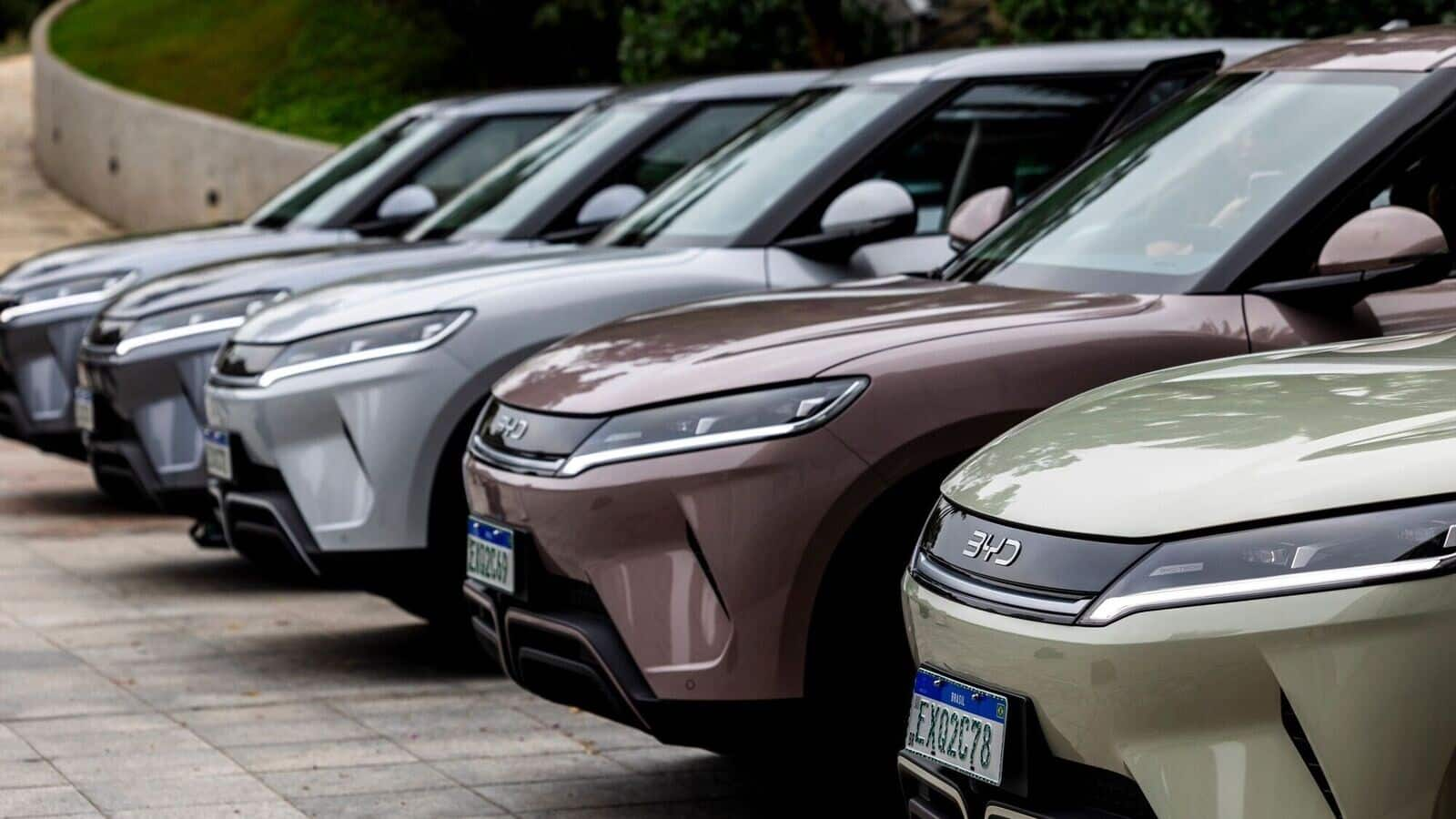
China asks local automakers not to invest in India
What's the story
The Chinese government has reportedly advised its domestic automobile manufacturers against making any automotive-related investments in India. This move is seen as an effort to safeguard the intellectual property of China's burgeoning electric vehicle (EV) industry. The directive also includes a caution to restrict advanced EV technology within China, according to Bloomberg.
Government intervention
China's Ministry of Commerce held meeting with automakers
In July, officials from China's Ministry of Commerce convened a meeting with representatives from Chinese automobile brands. During this meeting, the government's stance on restricting automotive investments in India was communicated. This information comes from individuals familiar with the matter, as reported by Bloomberg. The move is seen as Beijing's response to India's rapidly growing vehicle market and its potential threat to Chinese interests.
Market dynamics
India's vehicle market poses potential threat to China
India has emerged as the third-largest vehicle market globally, trailing only behind the US and China. The country has seen a significant increase in exports of automobiles and related components in recent years. Despite a substantial gap between China and India in terms of domestic sales and exports, Beijing's directive indicates its perceived threat from India's burgeoning market.
Expansion hurdles
Chinese automakers' global expansion and challenges
Several Chinese companies have experienced significant growth in recent years, with brands like BYD now competing against Tesla. These companies are exploring opportunities to establish manufacturing bases beyond China. However, they face challenges such as recent tariff hikes on China-made EVs in Europe and the US. In India, the government's EV policy is expected to scrutinize applications from automotive firms from countries sharing a land border with it.
Competitive edge
Factors contributing to Chinese EV companies' success
Chinese EV companies benefit from large-scale operations and government incentives, which help keep manufacturing costs low. This allows them to produce EVs locally and offer them at competitive prices in foreign markets. Additionally, the tech-loaded components in their offerings and the improving quality of their automobiles have boosted trust in 'Made-in-China' products.